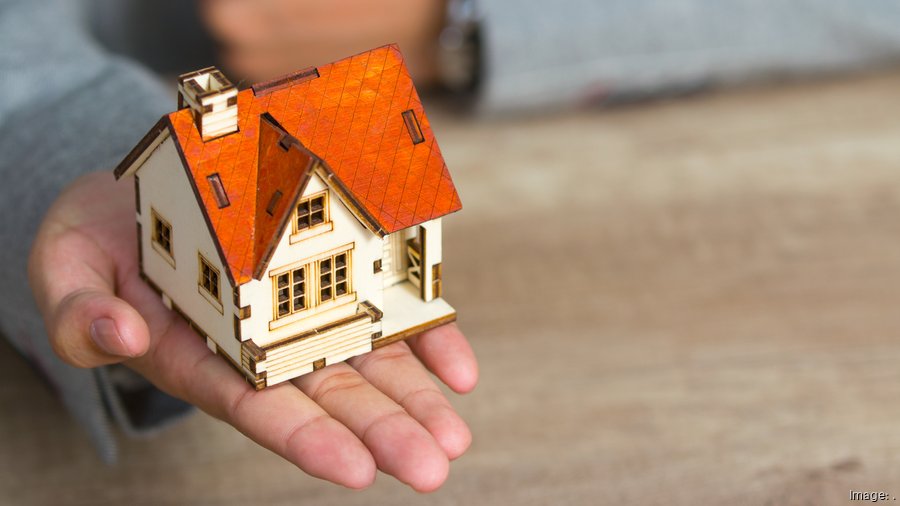
Austin Business Journal shares, "The median sale price for U.S. homes hit a record $383,725 during the four weeks ending April 21, up more than 5% from a year earlier, according to newly available data from real estate firm Redfin Corp.
The increase comes even as the supply of homes also has gone up, with 10.2% more new listings compared to the same time last year.
The record-high sale price is double what the median price was 10 years ago and up about 50% over the past five years, according to Redfin (Nasdaq: RDFN).
High interest rates have kept mortgage rates above 7%, and there's little indication from the Federal Reserve that interest rates will be measurably declining in the near term. That combination has helped push the median monthly housing payment to a record $2,843, up 13% over the same time last year.
The industrywide median sale price often becomes a starting point in home-sale negotiations, with Redfin finding that nearly 30% of the homes sold above the list price over the four-week period. The average sale-to-list price ratio, which tracks the percentage of the original asking price the average home sells for, came in at 99.2%.
“My advice to sellers is to price your home fairly," said Redfin Economic Research Lead Chen Zhao in a statement that accompanied the data. "Even though sellers are getting top dollar at the moment, they should price competitively to attract buyers from the start and avoid having to drop their price as stubbornly high mortgage rates eat into buying budgets. My advice for serious buyers who can afford today’s costs is to shop for your dream home and accept that this year is probably not the time to find a dream deal. Price growth may cool slightly in the coming months if mortgage rates stay high or rates might fall slightly, but overall housing costs are likely to remain elevated for the foreseeable future.”
Many homeowners are locked into their existing homes, whether it’s with low interest rates on their mortgage or because they simply can't afford to buy a new home. About 38% of homeowners said they don’t believe they could afford to buy their own home if they were purchasing it today, according to separate research from Redfin. Twenty percent said they might or might not be able to afford it, and 21.5% said they probably could afford it. Only 20.6% said they definitely could afford it.
The dream of homeownership seems to be fading for many too, with 40% of renters believing they will never own a home, according to Redfin, up from 27% last year.
“Rising home prices are a double-edged sword. On the one hand, Americans who already own homes benefit from rising values and they can consider themselves lucky they broke into the housing market while they could still afford it.” said Redfin Senior Economist Elijah de la Campa, in a statement. “On the other hand, price appreciation makes the prospect of buying a new home daunting or even impossible for many people who want to move."
Lawrence Yun, chief economist at the National Association of Realtors, said meaningful gains in the housing markets will only come when mortgage rates decline as inventory keeps rising. The NAR predicts existing home sales will rise by 9% this year and another 13% next year, while home prices rise about 1.8% each of the next two years.
“Home sales have lingered at 30-year lows, and since 70 million more Americans live in the country now compared to three decades ago, it’s inevitable that sales will rise in coming years,” Yun said in a statement. “Inventory will grow steadily from more home construction, and various life-changing events will require people to trade up, trade down or move to another location.”
Baby boomers, millennials, Gen Z are in a housing market tug-of-war
A report from Redfin earlier this year found that the length of time people stay in their homes has more or less doubled since 2006. In that year, the median homeowner spent about 6.5 years in a home. That number grew to a peak of 13.4 years in 2020 and dipped to 11.9 years in 2023.
About 56% of baby boomers have lived in their home for at least 10 years, according to the study, while about 35% of Gen Xers have lived in their home for at least 10 years. Just 7% of millennials have stayed in their home for 10 years or longer.
The homes of older Americans own also tend to be larger. A separate Redfin analysis found empty-nester baby boomers own twice as many three-bedroom-plus homes as do millennials with kids.
The houses that do come up for sale are increasingly in need of renovations. A recent report from home-improvement company Leaf Home and Morning Consult found 73% of baby boomers have been in their current homes for 11 years or more, and over half own homes built in 1980 or earlier that have never been renovated. A majority say they have no plans to do so, either.
"The housing market is caught in a generational tug-of-war. Boomers will soon face aging-in-place hurdles, while millennials will face the surprise of homes in need of major upgrades," said Jon Bostock, CEO of Leaf Home, in a statement announcing the findings."
Source: Austin Business Journal
Written by: Andy Medici
Published: April 30, 2024
Posted by Grossman & Jones Group on

Leave A Comment